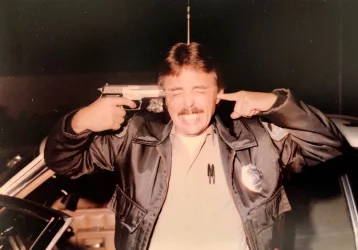You know what, let's talk about "Public Servants" for a moment...
Cops are indeed "public servants" because they do work for the body public, as governement employees. But that doesn't mean they "work for you." You can't give a cop an order, any more than you can order the tax assessor not to bill you this year, or tell the road & sewer guys not to dig up your yard to fix a pipe. (As a parenthetical aside... ain't it interesting that we tend to only hear the "you work for me!" stuff about cops, not the tax man or water meter reader?) They provide a service to everyone, and that service is sometimes individualized, meaning that they come to your door and help you out. And sometimes, they do things you don't like -- give you a ticket, or even arrest you. So, even though they are indeed public servants, they aren't your personal servants -- the emphasis is on PUBLIC not servant.
Cops are indeed "public servants" because they do work for the body public, as governement employees. But that doesn't mean they "work for you." You can't give a cop an order, any more than you can order the tax assessor not to bill you this year, or tell the road & sewer guys not to dig up your yard to fix a pipe. (As a parenthetical aside... ain't it interesting that we tend to only hear the "you work for me!" stuff about cops, not the tax man or water meter reader?) They provide a service to everyone, and that service is sometimes individualized, meaning that they come to your door and help you out. And sometimes, they do things you don't like -- give you a ticket, or even arrest you. So, even though they are indeed public servants, they aren't your personal servants -- the emphasis is on PUBLIC not servant.

